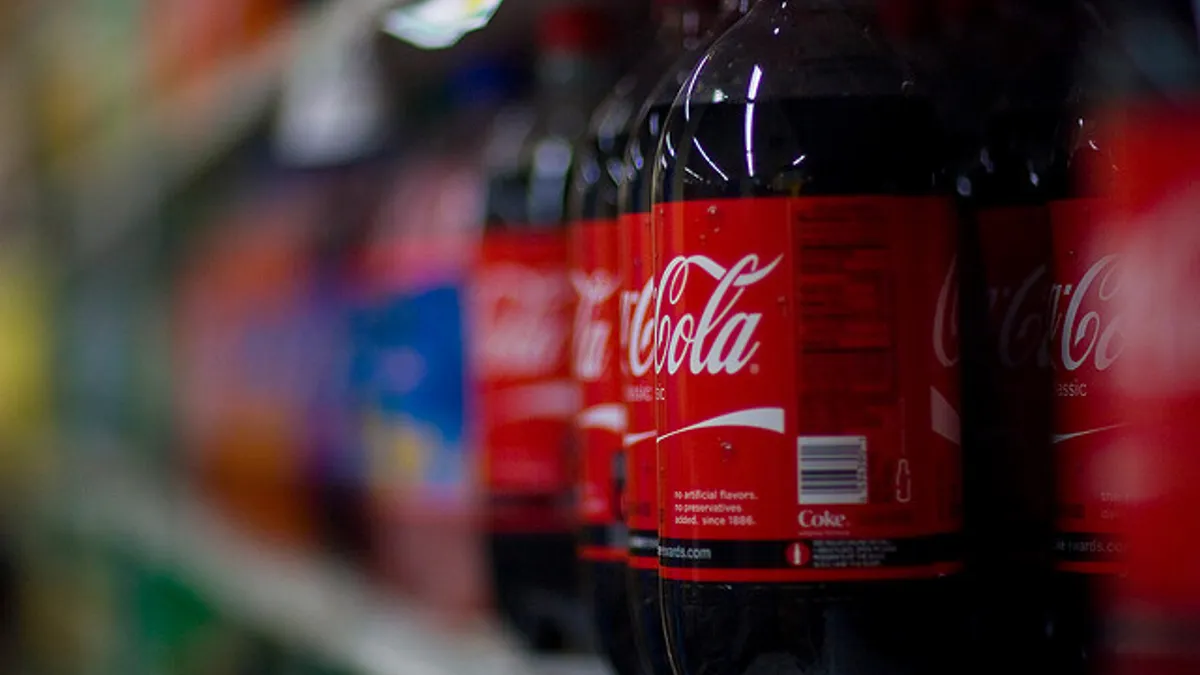Dive Brief:
- Grocery and food industry representatives and poverty experts told the House Agriculture Committee at a hearing Thursday that while soda has no nutritional value, Congress should not put new restrictions in place to keep beneficiaries of the Supplemental Nutrition Assistance Program from purchasing it, according to USA Today.
-
“Cashiers end up being food police at check-out time,” Food Marketing Institute CEO Leslie Sarasin said during the hearing. More delays at check-out counters — coupled with the small profit margins of the grocery industry — "would create real havoc" and could make retailers less likely to want to participate in the program.
- Angela Rachidi, who studies poverty for the American Enterprise Institute, was the only witness at the hearing who thought that restrictions should be put in place. She said she believes restrictions would drive stores to make healthier options available.
Dive Insight:
SNAP — also known as food stamps — is a roughly $75 billion a year program that helps more than 45 million Americans buy food each month. In the wake of a Congressional report based on a two-year review of the program and a New York Times story last month on the amount of soda and junk food SNAP recipients buy, potential changes to the program have been top-of-mind for policymakers. The debates are timely since SNAP is authorized by the massive Farm Bill, which expires in 2018.
The Congressional report — and many nutritionists, for that matter — recommend cutting back on sugary and unhealthy items that can be purchased with SNAP benefits, but the hearing showed this policy change would not be as easy as it may sound: Unlike items that have long been restricted like alcohol, tobacco and soap, there is not a clear distinction on what is and isn't a sugary beverage. Soda has a lot of sugar, but so do some products that are deemed healthy, such as fruit juices and yogurt drinks.
Members of Congress also looked at some of the other issues involved with restricting SNAP benefits to healthier food. Changing the products that can be purchased under the program likely won't end health problems such as obesity because other factors contribute to them. Some members wondered if it should be the government's job to restrict what people eat.
FMI's Sarasin told the committee that the grocery industry cares about the health of shoppers and what they choose to eat, but grocers are attacking the problem from a different angle. Grocery stores increasingly have dietitians and other professionals offering health and wellness advice, displays are built to inform people about healthy eating, product samples and recipes for healthy cooking are available, and product offerings are generally getting healthier.
Regardless of the recommendations from the industry, members of Congress have the authority to restrict SNAP purchases. At the hearing, Rep. Jon Faso (D-NY) requested a study that would target the impact of a SNAP soda ban. Given the recent popularity of initiatives for soda taxes, a restriction on soda may be in the program's future.









